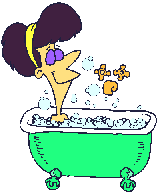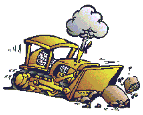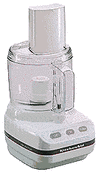I always wanted to write a novel. I’d written some children’s books. I’d written plenty of articles, even a few short stories.
But nothing matched that compulsion to author a novel. No matter how happy I was writing, that was what I really wanted to do.
I decided to give it a try. Followed the instructions from a book on novel writing to the letter – plotted out the story, did character profiles, yaddi yadda. Wrote the first 80 pages or so, convinced myself it was crap and quit.
First mistake. I decided to try.
Second mistake. Following instructions from a book. More on this later.
Third mistake. Listened to my doubts and chucked it in.
Well, the third mistake might have actually saved the thing, because I’m convinced my second mistake doomed the project to failure.
A year later, I found those 80 pages. We’d moved. I’d lost the outlines and everything else. Thankfully.
I realized those pages weren’t complete crap. I wasn’t sure where the story went now, I couldn’t remember. But the pages had potential.
So, this time, I made a decision, to finish this book, let the characters tell me who they were, and not worry about good, bad or whatever. Just finish the book.
And when I did, I became a novelist.
That’s how I wrote Suspicious Circumstances. Of course, I’ve since shredded it a few times, and it still has huge room for improvement. But the bottom line is, I wouldn’t have a deal today if I hadn’t decided to finish that book.
I cut my teeth on it. Oh, yes, there were some horrendous juvenile mistakes. Some pathetic writing. Some weak characterization. Thankfully, I’ve got time to go over it again, with a pro, and hopefully fix any lingering errors.
We’ve all heard the saying that a journey of a thousand miles begins with a single step. And in writing, that’s really true.
But it’s also true that writing a novel isn’t a technical exercise. Part of it comes down to instinct, to being able to listen to your gut, to knowing when moving a certain way or using a specific tactic will please the reader and make for a more memorable experience.
There are some things about novel writing that can’t easily be taught. They can only be truly comprehended through experience.
The bottom line, for me, is that there are no magic formulas. I think we fall into the trap of believing if we just do everything the same way someone else did, we’ll succeed.
Which is ridiculous. I can wear a nice suit, stand on a stage, tell jokes and look stupid, and people still won’t treat me like Seinfeld. I lack the spark he’s got that engages people. It isn’t me. It isn’t in me to do that.
This is one of the reasons that I love interviewing authors. I can ask them how they approach writing, plotting, whatever. And no two answer quite the same. It’s different for everyone. Everyone has to find their own path, their own way, and trust their instincts instead of trying to conform to how someone else is doing it.
I’m not big on formulas. It is true that doing certain things can improve the odds, but at the end of the day, it’s still you, the muse and your keyboard or notepad. And no matter how many people tell you to do it this way or that way or try this move, it’s all worthless advice if none of it works for you.
Question for the writers. How do you guys plot your books? Fly by the seat of your pants? Distant Shores method? Driving at night? Complete roadmap with trip planner in hand before word one?
Or if you prefer, you can try to prove me wrong about technical books on sex.
And don't forget! Pseudo-stalker* Cornelia Read will be penning her first blog post today as part of Naked Authors. Make sure you drop by and ask to see her goodies.

On a Sears hairdryer -- Do not use while sleeping.

On a bag of Fritos -- You could be a winner! No purchase necessary. Details inside.
(The shoplifter special?)

On a bar of Dial soap -- "Directions: Use like regular soap." (And that would be…?)

On some Swanson frozen dinners -- "Serving suggestion: Defrost." (But it's just a suggestion.)
On Tesco's Tiramisu dessert (printed on bottom) -- "Do not turn upside down." (Well...duh, a bit late, huh!)
On Marks &Spencer Bread Pudding -- "Product will be hot after heating." (Really?)

On packaging for a Rowenta iron -- "Do not iron clothes on body."
 On Boot's Children Cough Medicine -- "Do not drive a car or operate machinery after taking this medication." (We could do a lot to reduce the rate of construction accidents if we could just get those 5 year-olds with head-colds off those bulldozers.)
On Boot's Children Cough Medicine -- "Do not drive a car or operate machinery after taking this medication." (We could do a lot to reduce the rate of construction accidents if we could just get those 5 year-olds with head-colds off those bulldozers.)On Nytol Sleep Aid -- "Warning: May cause drowsiness." (I'm taking this because…?)

On most brands of Christmas lights -- "For indoor or outdoor use only." (As opposed to…?)
 On a Japanese food processor -- "Not to be used for the other use." (The other use? C’mon, tell me more!)
On a Japanese food processor -- "Not to be used for the other use." (The other use? C’mon, tell me more!) On Sainsbury's peanuts -- "Warning: contains nuts." (Talk about a news flash)
On Sainsbury's peanuts -- "Warning: contains nuts." (Talk about a news flash) On an American Airlines packet of nuts -- "Instructions: Open packet, eat nuts."
On an American Airlines packet of nuts -- "Instructions: Open packet, eat nuts."
On a child's Superman costume -- "Wearing of this garment does not enable you to fly."
 On a Swedish chainsaw -- "Do not attempt to stop chain with your hands or genitals."
On a Swedish chainsaw -- "Do not attempt to stop chain with your hands or genitals."(Got that fellas?)
* Pseudo-stalker, lurker. Tomato, tomahto.



24 comments:
I prefer to fly by the seat of my pants, but under heavy pressure from a couple of other writer friends, I'm working out an outline for this one before I write the book.
"You will hit a point in your career where a publisher will give you the nod or pass based on an outline and when you write your story you had better be pretty close to that outline. So, you might as well get used to the process now, before you have to due it with a deadline."
That was the convincing argument that made me give it a try.
But I hate outlines. Part of the fun for my is the spontinaety. Finding out what happens next as it hits the paper.
Hopefully, the outline process doesn't ruin the experience for me.
It wasn't until I spent some time plotting, outlining and doing some character sketching that I actually finished my first book. But there's a twist, the actual book looks very little like the outline! Once the writing was flowing, I let the characters speak for themselves. So is that "by the seat of your pants" or "by outline"? :)
My first attempt at completing a novel, I went with the whole play-it-by-ear plan. Why outline? I'll just get bored because it will be like writing it twice. And I ended up with a bunch of wandering crap and whining characters.
This time around, I have a roadmap. It's not really an outline, just an overall story arc with the big plot points on a timeline. It helps keep me on track, and is subject to change as needed. Mostly it's just there to remind me that "hey! you're coming up on the 2/3, 3/4, whatever...isn't it time to do something to make your character's life hell?" So, not a detailed itinerary, but a general idea of where the story is headed.
Following " writing formulas" doesn't work at all for me. But then, I've always had authority issues & don't take directions well.
James, very good point. Although my friend Cornelia Read has a multi-book deal and is still a fly-by-the-seat-of-her-pants girl.
Boy Kim, I'm so glad I don't have to call you Jason today.
Kat, I think you're transcending the formulas, LOL!
Angie, roadmaps - Stuart MacBride calls his mindmaps. If you check out the interview I did with him (link on the side) you'll find out why he says his subsconscious is smarter than he is.
LOL Bardawill! Leave it to you...
I've discovered that I do better with an outline. Less of a mess to merge historical facts with plotlines that way. :)
I start with a 20 chapter outline to get started, but within a couple of chapters I've already deviated from it. I use it as a tool if I get stuck -- a reminder of where to go from here. But like yesterday, strange things happen. It made sense to have a suspect be found dead on a beach in Mexico. I speak no Spanish, so I had to stop everything and plea for help. I got my translation help and went forward. It wasn't until late last night that it occurred to me. Where in the hell did a possibly Argentinian or Bolivian named Juan come from?
BTW Sandra,as long as I'm on MURDERATI, you'll never be totally alone!
Gabriele, I can see your point! Historical stuff would be very tricky!
LOL JT - does this make me a pseudo-MURDERATI alum?
Your dilemma sounds intriguing - with SC I got all the way to the end and realized I'd left out a character.
Don't ask.
I usually have to know what scene I'm writing before I can write it. That said, I find plotting out that these two characters must meet here and exchange this information to set up another scene later on is completely different to the act of writing that scene. It's like the difference between reading the precis in a TV guide and then seeing those words given flesh, depth and colour as moving images on screen.
But even while I couldn't claim to write by the seat of my pants, I absolutely rely on my gut feeling to tell whether a scene works or not. Intellectually, I can be satisfied, but if my gut doesn't agree I can't usually do anything past the scene until I go and fix it. At which point I realise my gut was right all along.
Carolyn Wheat's book How to Write Killer Fiction really helped me learn how to write a mystery. I had tried before and it just wasn't turning out. Now I know why.
Planning and seat of the pants, then re-planning when it's all gone different and more seat of the pantsing till it all needs re-planned again.
I think that about covers it.
Vincent, I do like to think a scene or two ahead as well, if I can. "Driving at night."
Trace, I'll have to check out that book.
Did I read that right, Stuart? Have I got you panting on my post about writing is like sex?
Hmmmmm...
Stuart MacBride said...
"Planning and seat of the pants, then re-planning when it's all gone different and more seat of the pantsing till it all needs re-planned again.
I think that about covers it."
I'm finding that I write first draft completely totally and entirely by seat of the pants. I get this fabulous idea of a story and just go at it. Buttplot, I call it.
Now that I've proven I can crank out a ms, since I have five of them done, I can go back and avoid the old finger down the throat. All I gotta do is READ that first draft and it's time for the porcelain god.
This second time around on the first first draft has me mining that first draft for events and timelines. Why not use what I can get out of it?
But I like Stuart's idea. Makes utmost sense to me. Plan when you can see all the parts, then clean up the whole thing.
Query: I have an old expression of "whale away" at something, as in, beating a rug with a rugbeater. Altho I can't find whether it's "wale" "wail" "whale" or possibly "rail" away. Does ANYBODY have an idea?
Here or at forrest at cebridge dot net. Thanky thanky.
Thank God I read your post just before I was about to fire up the old chain saw. You saved me potential embarrassment and loss of...eh...limbs.
As for the way I write...I've written four novels without outline. Now that I have a deal, Bantam Dell apparently wants a synopsis first. How did that get into my contract? So I'm writing a outline now while trading off days starting the actual book. And guess what? Though I've basically outlined ACT 1, I've already deviated from my outline!
If I only had enough time to write the whole book, I know I could write a killer outline that's completely accurate then.
No clue about that phrase Forrest, couldn't find it on the phrase finder either.
Brett, thank God, step away from the chainsaw, LOL!
Man, outlines? Seriously? This might be the advantage of being with a small press. I don't have to do one.
Sounds like most of us just listen to the voices...
Honestly, I've never done two quite the same.
The first one, I did have something to work with - those 80 pages. So, that's a partial outline. A starting point, anyway. Then another, distant shores, totally. Another, fly by the seat of my pants.
Driving at night worked well for the other one...
For the trees, Merriam-Webster says whale as a verb means to strike or hit vigorously. So whale away.
Thanks Sandra - that's awesome. I was looking up phrases and didn't find it.
I do it in layers and each layer has scences laid out in two or three sentences...is that considered outlining?
Hooray!
Sandra Seamans said...
"For the trees, Merriam-Webster says whale as a verb means to strike or hit vigorously. So whale away."
THANK YOU! I couldn't find it, either! Now I'll just beat the snot out of it! Dust, too!
Sandra, I really like using your blog's comments section as a reference! Nice sideline you've got here!
Forrest
Well, I've only written one novel and haven't even finished it, but I can tell you what I've done so far.
I came up with a few characters, outlined a rough plot and put more detail in the first few chapters. As I wrote, I tried to plot ahead a few chapters so I always had somewhere to go once I'd finished each scene.
Second draft, I went all spreadsheety, which is just a fancy way of looking at a list of scenes. Then I went to the trouble of making another spreadsheet that had all the locations and characters in each scene. I realised I was doubling up on some of them and snipped away.
Third draft, I'm having major plot rewrites and losing more characters. I am trying to be as sneaky as possible when it comes to replotting so that I don't have to chuck away large sections of work. I did have more detailed outlines, but now I'm planning on working with my synopsis alongside.
And then ...
Watch the movie "Dude Where's My Car?" and you'll understand.
Forrest, You're welcome. I keep two dictionaries on my desk. Mostly because I can't spell worth a darn and because I tend to use old-fashion words. I'm always looking them up to see if there's a better word. Your dictionary is your friend and usually faster than your dial-up internet. Sandra
The stuff Daniel does sounds like the kind of thing I would do if I was as methodical in my writing as I'd like to be. The only exception to that would be coming up with characters - I almost invariably start my stories with a strict plot, but I can't do the same thing with the characters. Names, personality, history, that's something I can only develop when writing the story.
It also struck me as strange that others have found the fun creative part comes when writing the first draft. I'm still coming up with new ideas on my second draft and most of those don't happen when I'm writing. They happen in the shower or on the toilet or on the way to the shops (yes, I'm at my most creative when going shopping in my motorised portaloo).
Daniel loses characters and I gain them. What is this, cosmic balance? Next time I feel the urge to add someone in I'm going to check to see if you're giving one of yours the boot!
Vincent, inspiration strikes at the most unlikely of times! When I'm writing, I keep a pen and paper beside the bed. I'd wake up all through the night and have an idea for the book - some tweaking of dialogue for what I'd just written or a future development.
Inspiration knows no work schedule!
I'm still trying to grasp the subtlies of your analogy, help me here;
You pull out before your through?
You finish before the reader?
The reader enjoys it more than you do?
You write doggy style?(Snoop Dog's recommended method)
You only do it one way?
69?
You do it alone, with one hand and a battery operated device?
I could go on....
Post a Comment